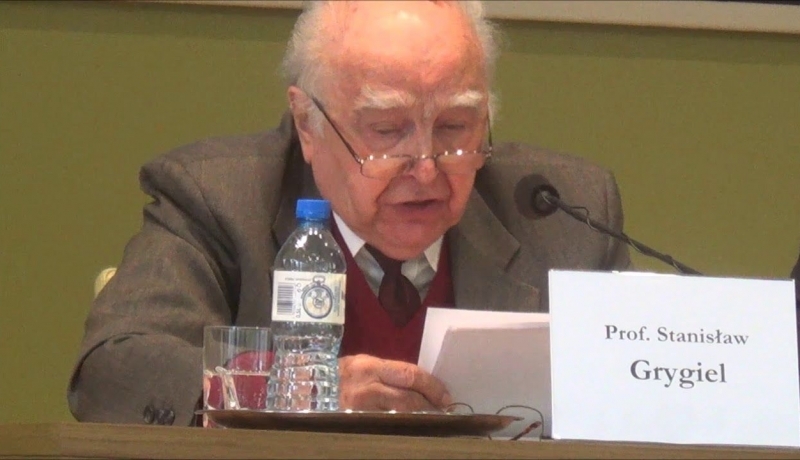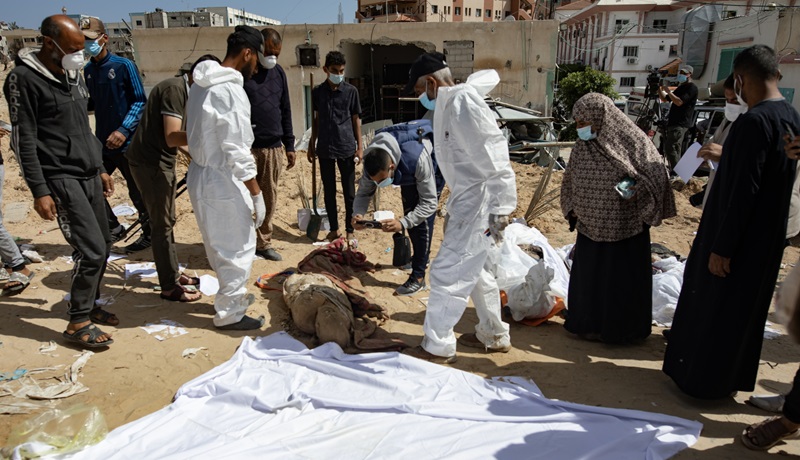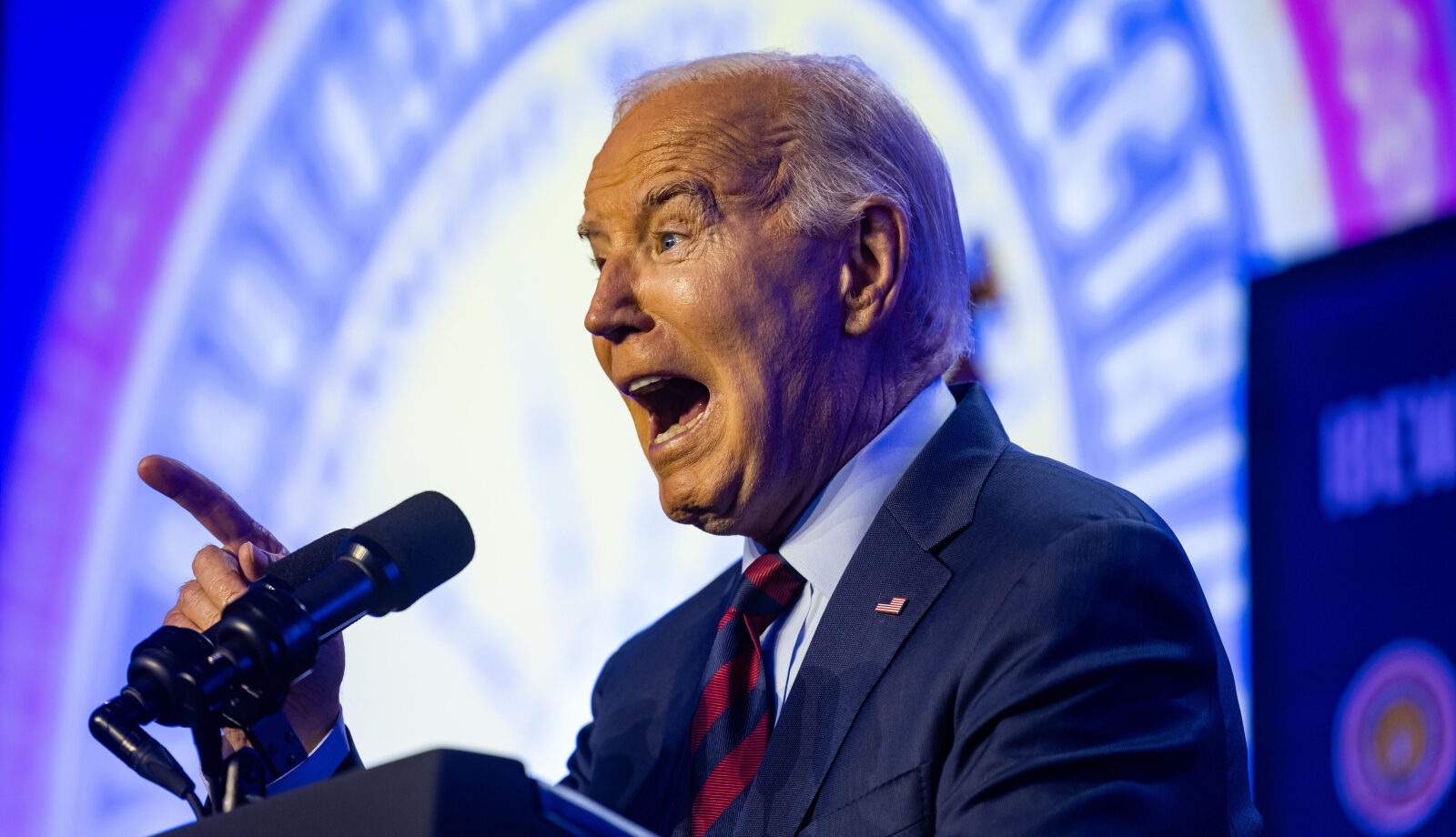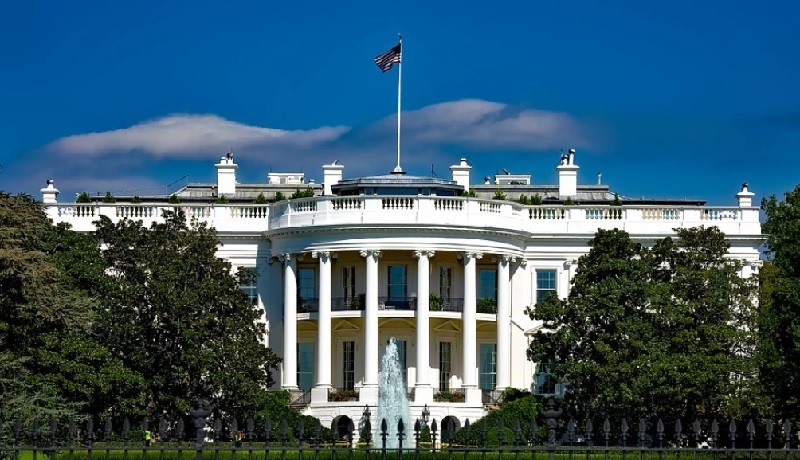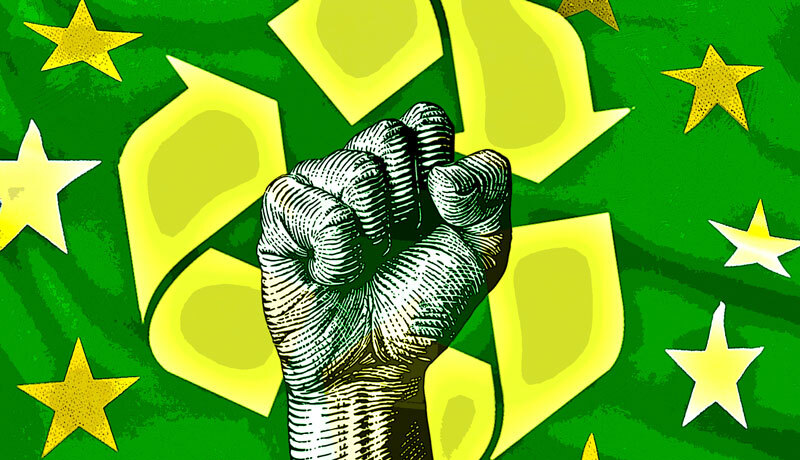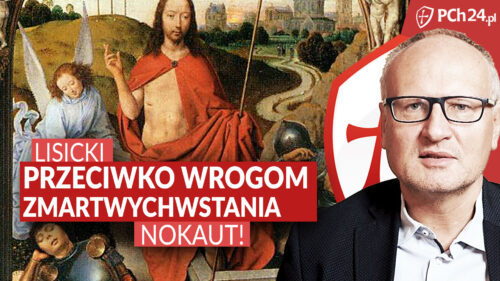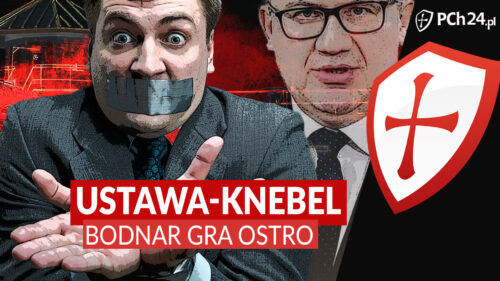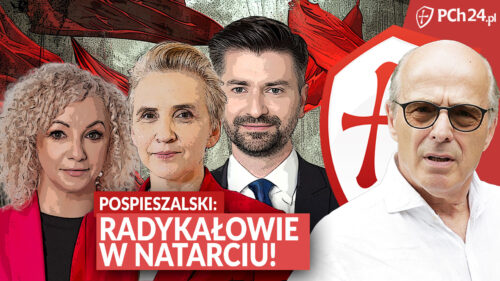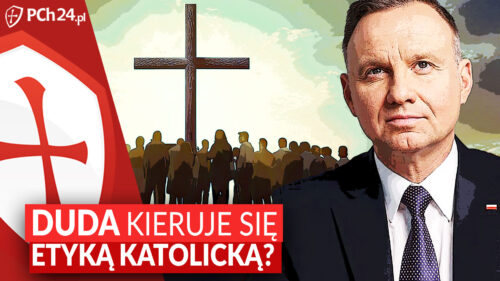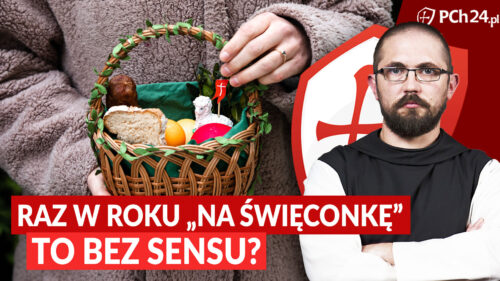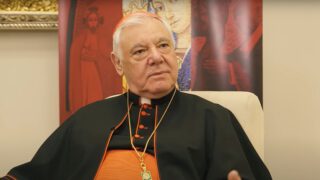Hanna Nowak (Teologia Polityczna): In recent days there have been great changes in the John Paul II Institute for Studies on Marriage and Family, which you created together with Karol Wojtyła 40 years ago. How do you pull yourself together in the face of your dismissal? Was it possible to predict such a situation?
Prof. Stanisław Grygiel (philosopher, ethicist, anthropologist): There have been no changes in the John Paul II Institute for Studies on Marriage and Family. The Institute was simply dissolved by Pope Francis exactly two years ago. In the same motu proprio (Summa Familiae Cura, September 8, 2017) the Pope dissolved St. John Paul II’s work in one sentence and in the next created his own Institute, which still kept the name of his saintly predecessor. The new Institute is called The John Paul II Pontifical Theological Institute for Marriage and Family Sciences. One new word in the name says everything: sciences. What sciences? There is no science about marriage and the family. So what does this name describe? Only the fact that sociology, psychology and related sciences will decide how and what one ought to think about marriage and the family in the newly established Institute. At one point I called for the removal of St. John Paul II’s name from the name of the Institute, because, as I said, it shouldn’t be used as a fig leaf… Moral theology and also Wojtyła’s adequate anthropology were forsaken by the Institute – does it mean then, that the ethics of people who are married will be determined by opinion polls? Does the fact that many people steal, commit adultery, lie, etc. authorize us to dissolve the Ten Commandments? Those who ask questions about the meaning of life and who are looking for the path they should take without missing the answer to these questions, cannot live in a house built on sociological and psychological meanderings on marriage and the family in these various so-called cultures. Christ didn’t preach sociological opinions but the Word of the Living God.
Wesprzyj nas już teraz!
How did I pull myself together in this situation? I keep in touch with my friends, particularly with the unforgettable late Cardinal Carlo Caffarra. This helps me create a family-like scientific reality, which was in accordance with John Paul II’s thoughts and wishes for the Institute. I’m surprised by such words as the “renewal, expansion and deepening” of this Institute, which are uttered by those who are destroying it together with its foundation. Destruction doesn’t equate with renewal.
Was it possible to predict the events that have shaken world opinion today? It was possible. The doctrinal maneuvers pulled during the two synods on marriage and the family in 2014 and in 2015 left no doubt that the postmodern tendencies of people’s behavior and thinking beyond good and evil invaded the Church through theologians and pastors, who for reasons known only to them, started twisting the Word of God to fit those tendencies. Using ambiguous words and oblique statements they cleverly created chaos and confusion in the minds and hearts of many people. The words of Christ came true, “Let your word be ‘Yes, Yes’ or ‘No, no’; anything more than this comes from the evil one” (Mt 5.37). When one gets into this “anything more”, the credibility of the Gospel and Tradition of the Church gets undermined. It is enough to recall the statement of the present general of the Jesuit order, that we cannot be sure if Christ really said the words the Evangelists handed down to us because they didn’t have recording devices. The lack of recorders, according to the general, means we have to depend on interpretations of interpretations. Therefore, we must ask what is the influence on the Church of people who trust not only in the Word of the Living God, present in the Church and only “said once” (semel dixit), but also in one type or another of sociological or psychological interpretations of this Word. Religious faith depends on man trusting the Living God in an everyday and direct conversation with Him and not through one’s own opinions about Him. One desires to talk with a beloved face to face and not with that person’s voice recorded on audio tape.
Many intellectuals were dismissed from the Institute for their reaction to the voices which were alternative to the tradition they followed. Can these events be treated as a symbolic moment, a tangible symptom of these transformations that the institutional Church is giving in to?
Yes, they can. They can and we need to treat them as such. I’m convinced that what happened to the Institute is linked to the changes that might be introduced by the approaching Pan-Amazon Synod. We might ask a question, “Can the Church, which has looked at man in the light of the truth revealed in Christ, also look at man on almost the same level in the light of local cultures (for example, the Amazon one) or should the Church remain in an evangelical light and preach what it can see?” The abolition of the John Paul II Institute became a sign that revealed the thoughts of many hearts. Some professors have been removed from the Institute, some professors who read Amoris Laetitia in the light of the faith of the Church rooted in the Gospel and Tradition, and not, as Cardinal Christoph Schönborn of Vienna demanded in his discussion with Cardinal Carlo Caffarra, read the Tradition present in the teaching of the previous popes in the light of that document. It is in the name of Tradition that both ways of journeying towards the truth are important in the Church. As a result of reading the revealed truth about man only in the light of today’s here and now, it is very easy to descend to the level of flattering those truths that one’s career depends on. When Christ says that whoever leaves his wife and lives with another woman commits adultery, no interpretation by even the cleverest theologian or minister can change the meaning of the word “whoever”. If we say that in this or that case someone does not commit adultery, because he is justified by this or that, it means that at the same time, we say that Christ didn’t know what he was saying, because he didn’t know what is inside a human being. He should have asked other people. But St. John says that Christ “knew all people” and didn’t have to ask anyone (Jn 2.25). According to the imperious voice of today’s followers of situational ethics and pseudo-Ignatian discernment, Christ didn’t know what was hidden in every man, because for example, He didn’t know what was hidden in the man with a clear conscience who was living in his second or third pseudo-marital union… So Christ wasn’t God. Someone very important in the Church today has already dared to say that Christ became God only after the moment of His death.
Disturbing signals concerning the changes in the Institute have been noticeable for some time. In light of this fact, were there any thoughts of saving the identity of the Institute by, for example, moving the headquarters somewhere else? It might be said that the part of the professorial staff who were dismissed have their own copyrights to it – since they were the ones who created it according to John Paul II’s decisions. Maybe such a move, based on consolidating in another place, would have prevented what happened with the scattering of the dismissed professors?
We cannot talk about the professors of the Institute having copyrights. The Institute had papal rights, not the professors’. However, the Institute established by St. John Paul II left its spirit among thousands of students around the world. In those days their voice turned out to be so strong that it even surprised the professors themselves. The professors were not scattered. They still remain the one family that St. John Paul II wanted. His Institute remains but in a different way.
Referring to the previous question I would like to ask how you see the role of the Polish Church in the broadly understood studies on the thoughts of John Paul II and its popularization?
I think that our Polish bishops should take care and make sure that departments dedicated to Karol Wojtyła’s philosophy and John Paul II’s teaching are established and work in the seminaries and universities that they have influence on. Anthropological and theological studies based on Wojtyła’s adequate anthropology and on the theology of the body will help priests to prepare young people for a life of beautiful love in marriage and in the family and also to social and state life. These studies help life in the Church. Celebrations and elaborate ceremonies honoring the sainted Pope are not enough. There is a need for the work of the mind and heart, painstaking work in which the truth liberates the person who seeks it from the Egyptian bondage of evil. Such departments should be called departments of responsible love or departments of freedom.
In the difficult time today local Churches need bishops courageously professing their faith in Christ and saying a strong “No!” to the devil. The recent statements by Archbishop Marek Jędraszewski of Krakow, who expressed his evangelical “No” to the ideology of the warped rainbow, encourage and bring hope not only to Poles. Many cardinals and bishops from other countries stood by him, seeing in him a worthy successor of Cardinals Prince Adam Stefan Sapieha and Karol Wojtyła. God never forsakes His people. He always gives them shepherds able to face up to the challenges they might encounter. The rainbow of the covenant between God and man has seven sacramental colors. They are the life of the Church. All of them tell us about the love which is revealed and realized in them. Taking out one color in the rainbow stops it from being an epiphany of the light of God’s Love, dispersed as seven colors. The false rainbow brings chaos into human love, which reflects the Love which is God. In this chaos the mind and heart of man become brutalized and enslaved. It is the duty of bishops and priests to defend the fold entrusted to them against this chaos and against those who use this chaos to come into power. Their responsibility is, therefore, to say “Yes, Yes, No, No” and not to beat about the bush and seek their own private success in that something more. Maybe it’s comfortable to be in with the Devil but it’s never honorable.
One evening St. John Paul II handed me a letter written to him by a well-known theologian. He said, “Read it and tell me what you think of it.” That theologian advised John Paul II to change the ethics of marital sexual relations, because if he didn’t change it a lot of people would leave the Church. Just after reading the letter I said sharply, “This is stupid!” After a moment of silence the Pope said simply, “Yes, it’s true, but who will tell him that?” Then, without a word he went to the chapel and remained there alone.
What was John Paul II’s intention when the Institute was being established? What were the values you were building it on? How do you recall your first conversations about it with Karol Wojtyła?
St. John Paul II was well aware of the fact that the fate of the Church rests on what is in marriage and the family and also the fate of the world was being determined. In our conversations in Krakow and then in Rome we exchanged anthropological and theological reflections on marital and family love, which should shape theology and philosophy cultivated in the Church. In marital-family love, which was conceived in the act of creation of the universe and man by God in His Son, the Truth is revealed – the Logos of the Living God, which is something we call, sit venia verbo, the doctrine of the Church (Mk 5.33-34). By entrusting to this Word, in which God creatively thinks of a human person, both theology and philosophy should be cultivated in the Church. The power of faith in man and faith in God shows in the power of our “No!” to those, who for ideological reasons, demand that society respect human life only conditionally and not unconditionally in its initial stage (abortion) and in its final stage (euthanasia). The denial of the beginning and the end of love, to which marriage and the family are called, love which is an epiphany of the Love uniting the Father and the Son in the Holy Trinity, bends ecclesiology to only a horizontal dimension, and with the help of sociological-psychological methods of reasoning, subjects man to the ideologies that are dominating at this very moment. John Paul II cautioned and defended the Church and society against that danger. To those who say that he was not successful I will answer briefly that he wanted an eternal victory. He entrusted himself to the eternal Truth nailed to the Cross and bent his knees in front of Him. He didn’t kneel in front of the Evil One, triumphant in a particular time and particular space and promising transient kingdoms of this world. With the power of the Word of the Living God he stated that freedom didn’t depend on doing whatever man felt like doing today or would feel like doing tomorrow, but on doing what everybody should want. And the Truth tells us what it is that man should want. Freedom comes from the Truth not from lawlessness. It has nothing to do with a lack of rules.
40 years ago John Paul II was already talking about the crisis of the family. This issue was very important in his whole pontificate and its formal expression was the apostolic exhortation Familiaris Consortio. Is the papal teaching endangered now, when the crisis has deepened even more and the Institution, which was supposed to counteract it, is undergoing such radical changes?
The threats to the Truth present in the faith of the Church and in the love of man to fellow man, then to the Truth present also in the teaching of John Paul II, which expresses faith in God and in man, might painfully hurt people; however, it is never a mortal threat to the Truth itself. The Truth will always be mercifully present to man. Thanks to this, even in the heart of darkness, man carries a gift of hope against hope (spes contra spem). Christ, who resurrects the dead so they can be saints, is present in this gift. The Church lives thanks to the resurrected freedom of their faith, hope and love. Christ is present in these three epiphanies of the gift of freedom. He is not present in the opinions about Him, especially those which are created by some theologians and ministers according to the Marxist principle: Praxis (in this case the so-called pastoral praxis) determines the truth, or Logos. Today, the apostolic exhortation Familiaris Consortio or the encyclical Redemptor Hominis should be read in churches everyday. Every Christian should engrave the words of Christ in his mind and heart, “For you cannot make one hair white or black. Let your word be ‘Yes, Yes’ or “No, No’, anything more than this comes from the evil one” (Mt 5.37). In the documents of the teaching Church there is no place for ambiguity or the well-known in Poland, “I am for and even against”. Ambiguity in the Church might even have tragic consequences. It introduces into the life of the Church an understanding of the truth in a linear concept of history, not in the view of the Redeemer of Man who “is the center of the universe and of history” (cf. Redemptor Hominis, 1).
What do the proposals of the new ideology mean and to what extent are they a real threat to the Church, to the family in the long-term?
The answer to this question is in the answers to the previous questions. I will only add that in these proposals there are words which have had their meaning changed. They have been detached from the reality they concern. In postmodern ideologies such words as love, freedom, justice, peace, tolerance belong only to the opinions created at the bidding of transient fads, which are ruled by the principle, “Do whatever you like!” Today it is worth recalling the prophetic words of Vladimir Soloviev from his book Antichrist, published in 1899, that when the Antichrist appears he will take on the form of a pacifist, a vegetarian, an ecologist and an ecumenist. Will the family break down? I’m sure it will not. Why? Because the Truth, which a human person is entrusted to, and so marriage and the family as well, will not break down. God cannot be broken by any opinion about Him. So there is Somebody to return to and in Whom it is possible to return to new life. The Truth defends us.
According to George Weigel, the post-conciliar Church has followed two contradictory paths. The first one emerges from the philosophy of Hegel, Feuerbach, Marx. The other, the traditional one, referred to the teaching of the patron of the John Paul II Institute for Studies on Marriage and Family. I would like to ask a philosophically naïve question, but just from the sheer wonder of it: how was such a strong and parallel power in the Church able to take hold with a standpoint that attacks its vital characteristics?
It’s a difficult question. Christ warned His disciples against not having intellectual and prayerful vigilance (cf. Mt 26.41). Many factors contributed to its weakening. I suppose that one of the main reasons for this lack of vigilance is a lack of prayer, and also a lack of culture. I’m talking about the culture St. John Paul II spoke about and without which no historical culture is culture. I’m speaking about culture as cultivating humanity in man thanks to the grace of the liberating and healing truth without which no man can understand himself. The fulfillment of humanity in man is the Promised Land for everyone, which we are journeying to till the last moment of life. Dying, we only see it and greet it from afar (cf. Heb 11.13). Like a roaring lion the Evil One prowls around our hope, waiting for a convenient time to attack. The Institute was attacked by theologians and ministers who lacked hope and faith. They stopped believing in the grace that comes from living in the sanctity of the sacrament of matrimony and that this is an ideal impossible to fulfill. It is they who substituted the vertical dimension of metaphysics and a fortiori of moral theology and Wojtyła’s adequate anthropology with the horizontal plane of sociology, psychology and similar sciences. The new name of the Institute shows a new foundation of thinking about marriage and the family, which means a different perception of love and freedom.
Why is a prestigious Catholic school, when there is a university crisis, calling “development” its reformulation, copying de facto schemes of lay universities? Why does pragmatism supplant kerygma?
This is a great question. Thank you for asking it. Experience tells me that pragmatism supplants kerygma wherever the decisive voice belongs to people who have been corrupted one way or another by the “weakness of the flesh” (cf. Mt 26.41), and that is why they don’t keep vigil and don’t pray. They want to justify the evil they have done, because they don’t believe that the only remedy for sin is God’s mercy. They only believe in the power of politics and possession. So it’s not surprising that their idea of mercy is only in passing out bread and by this mercy they want to justify themselves. In their pragmatic mercy they obscure people from the mercy that is the redeeming Word of the Living God. The gift of truth is mercy for man. Man is supposed to look for its kingdom and the rest will be given to him (cf. Mt 6.33). Secular universities, which first of all look for those things which are “given”, lose their way to the truth and finally forget how to ask for the way and sink into mindlessness. Do people in the Church want its universities to share the fate of secular universities? Some perhaps do. Why? That is the question.
I will ask ironically, although not without fear, will the next step be replacing dogma with the currently fashionable program of cooperation between academics and business?
This can be brought about by the way of thinking of many theologians and ministers, which is guided by a broadened Marxist principle: pastoral praxis creates truth. Pastoral work has become a kind of business for them. The will of achieving notable success makes them look for the criterion of good and evil, truth and untruth in opinion polls. Priests, theologians, philosophers and the institutes they work for will be judged according to the efficiency of success proved experimentally. Some shepherds and archprelates seem to forget that the contemplation of truth, good and beauty cannot be treated equally with the production of buckets, hammers or nails.
The dispute we’re having isn’t simply a discussion concerning outlook. When it concerns Christianity, notional disputes always have their own material, concrete weight. The structural changes taking place in the Vatican not only confirm certain tendencies having been present in the Church for some time, but also constitute a new reality. How do you see your role – both as an intellectual creator of the Institute and also as a Catholic – in the face of this new reality?
I’m not worried about what to do today, but about how I’m supposed to be here and now, so not to succumb to fear, but to take care of the gift of faith, hope and love with dignity. I reject the horizontal idea of the brave new Church, or the brave new world preached by the theological fans of Aldous Huxley. This is the Marxist principle: praxis decides what is true at any cost, leading to what is not true. Whenever necessary, anyone who believes in the power of God’s Word made flesh should always say a loud and unambiguous “No!” to those who entrust themselves to other powers. Such a person should raise his glass in Cardinal Newman’s toast to conscience.
Based on your experience from many years of work in Rome do you see any mistakes on the orthodox side in the way you taught about marriage and the family? Are we able to express the traditional, unchangeable values in modern communicative forms? What language should be used to talk about the Holy Family today? Will the Holy Family tell us about itself alone and in the end we shouldn’t worry about drowning out the Gospel?
We made mistakes in this respect in which we talked about marriage and the family using empty words, I mean words which didn’t resonate with love for the truth about human love. The words we were not present in were “a noisy gong or a clanging cymbal” (1 Cor 13.1). I hope that we also spoke words that were not empty because they were filled with the Word. We trust in this Word and in the consequences of our faith in It. Entrusting ourselves to the Word of the Living God is both difficult and easy at the same time. Everybody can entrust himself to Him regardless of his education. The faith of the illiterate sometimes is so huge that theologians cannot fathom it with their limited mind. The difficulty of faith lies in the fact that it demands conversion to God from everyone, both the illiterate and scholars. A minister is a minister and a theologian is a theologian, when they point with a word which is an act and with an act which is a word towards this only Word-Act which is Redemptor Hominis – “the center of the universe and of history.” Hegel would say that people should be constantly reminded of death because only when it looks them in the eye can they face the question about the sense of their lives. They start thinking.
Politicians too often use empty words. This is why they are applauded and voted for by people who don’t think. The Church is not about politics but about salvation in Christ – in the Word of the Living God. In the Church there is no place to preach empty words and for mindlessness. Theologians and ministers, before they start seeking words for their speeches, should kneel down before the Word whose presence they are supposed to make evident to others and listen to It. This Word is the same as it was two thousand years ago. It doesn’t change. Therefore, the words that are supposed to transmit It should be absolutely clear. The dirty words that come out of people’s mouths, who let themselves be deceived by the Evil One, don’t open anybody up to God, but serve as instruments for subjecting Its presence in the consciences of all people to the will of the rulers of this world. Christ always speaks the same Word, because He speaks Himself, the Son of the Living God. The only words impossible to communicate are those which don’t contain the Word. The Word in which the act of creation happens. The Holy Family is an epiphanic evidence of the act of creation and at the same time the act of salvation, the evidence which is unique and unrepeatable in the history of mankind. Nobody and nothing can drown It out, because nobody and nothing can drown out the Word, which is the center of the universe and of history.
Hanna Nowak
Transl. Jan J. Franczak
Teologia Polityczna: Zmierzch Instytutu Jana Pawła II? Rozmowa z prof. Stanisławem Grygielem

